
.png)
In the fast-evolving world of commerce, where technology disrupts industries and consumer expectations shift almost overnight, entrepreneurial success is no longer determined solely by a great idea or generous funding.
What truly distinguishes sustainable businesses from fleeting ventures is the mastery of a set of timeless entrepreneurial skills that transcend market cycles and technological trends. These skills form the backbone of business growth strategies, leadership development, and long-term profitability.
While tools, platforms, and market conditions will change, the entrepreneur’s capacity to think strategically, adapt to challenges, and execute with precision remains constant.
The entrepreneurs who rise to the top are those who have cultivated a multi-disciplinary skill set, combining vision with discipline, creativity with analytics, and resilience with adaptability.
They understand that entrepreneurship is not a static profession but an ever-learning journey - one that demands agility in thinking and decisiveness in action. The value of these skills is magnified in an era where opportunities are borderless, competition is global, and innovation cycles are shorter than ever before.
Even as artificial intelligence, blockchain, and decentralized business models reshape industries, these core competencies will remain the foundation upon which successful enterprises are built.
Just as Warren Buffett’s principles of value investing have endured market crashes and booms, so too will these entrepreneurial skills stand firm amid shifts in consumer behavior, technological revolutions, and geopolitical changes.
This article examines the ten most valued entrepreneurial skills essential for building and sustaining a thriving business in 2025 and beyond. Each skill is explored through its strategic importance, demonstrated by real-world examples of notable entrepreneurs, and distilled into actionable insights for aspiring and seasoned business leaders alike.
These are not merely optional enhancements to your professional toolkit - they are the non-negotiable capabilities that will determine whether your venture flourishes or fades.
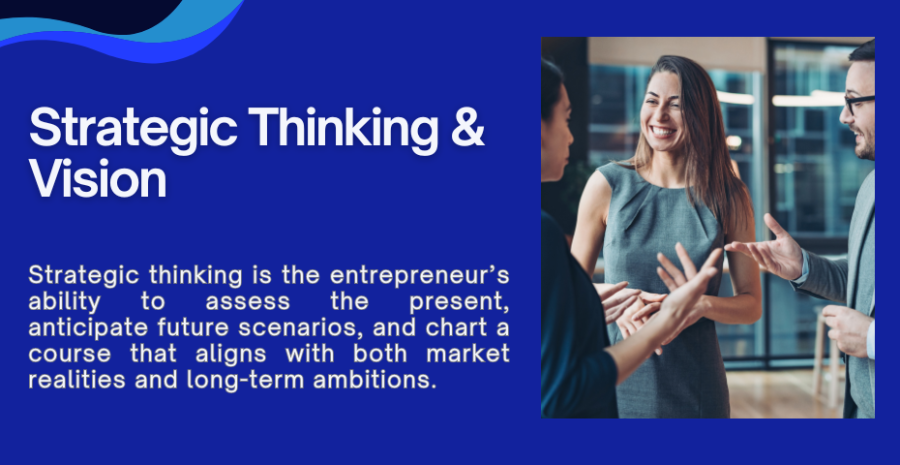
Strategic thinking is the entrepreneur’s ability to assess the present, anticipate future scenarios, and chart a course that aligns with both market realities and long-term ambitions. It is not simply about creating a business plan - it’s about constructing a flexible yet focused blueprint that evolves with new information and opportunities.
Vision complements strategy by providing a compelling “north star” that guides decisions, rallies teams, and attracts stakeholders. Together, they form the leadership compass that keeps an enterprise moving in the right direction even during turbulent times.
Consider Jeff Bezos, founder of Amazon. His strategic foresight to move from bookselling into becoming “the everything store” demonstrated not only adaptability but an unwavering vision to make Amazon the most customer-centric company in the world.
This long-term focus allowed Amazon to invest heavily in infrastructure, technology, and customer experience - moves that paid off years later and positioned it as a dominant force in global commerce.
Takeaway: Entrepreneurs must cultivate the discipline of looking beyond immediate gains.
Regular strategic reviews, scenario planning, and maintaining a clear vision statement ensure that every tactical decision aligns with a broader mission.
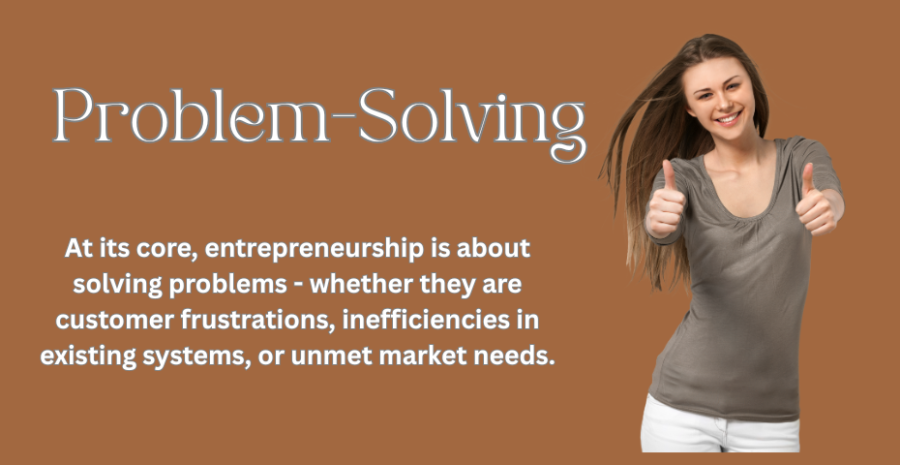
At its core, entrepreneurship is about solving problems - whether they are customer frustrations, inefficiencies in existing systems, or unmet market needs.
Effective problem-solving requires analytical thinking, creativity, and the ability to make decisions under pressure with limited resources. It is a skill that transforms challenges into opportunities and setbacks into learning moments.
Sara Blakely, founder of Spanx, exemplifies this perfectly. Faced with the discomfort of traditional undergarments, she devised a simple yet revolutionary product by cutting the feet off pantyhose.
Without formal fashion or business training, Blakely identified a problem overlooked by major brands and built a billion-dollar enterprise by offering a better solution.
Takeaway: Problem-solving is enhanced by active listening to customer feedback, conducting root-cause analyses, and fostering an environment where innovative ideas are encouraged and tested quickly.
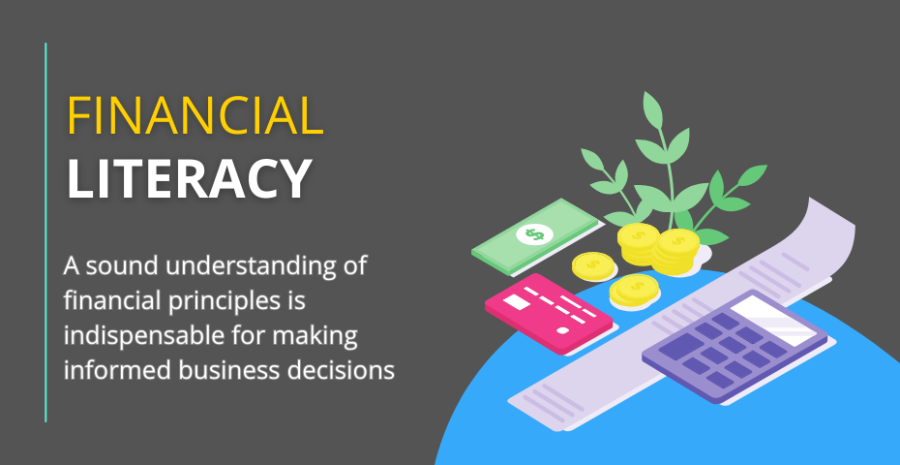
A sound understanding of financial principles is indispensable for making informed business decisions. Financial literacy encompasses reading and interpreting financial statements, managing cash flow, budgeting, pricing strategies, and investment evaluation.
Entrepreneurs with strong financial acumen can foresee potential cash crunches, assess the viability of expansion, and negotiate from a position of strength with investors and partners.
Elon Musk’s ventures—from Tesla to SpaceX - have relied heavily on strategic financial management to survive and grow in capital-intensive industries.
Musk’s ability to secure funding, manage operational costs, and strategically reinvest profits has allowed his companies to weather challenges and scale rapidly.
Takeaway: Whether through formal education or self-study, entrepreneurs must make financial fluency a priority.
This enables them to protect their company’s viability, leverage growth opportunities, and navigate economic downturns confidently.

No matter how innovative a product or service, it cannot succeed without effective marketing and sales. These skills involve understanding customer psychology, crafting compelling value propositions, building brand equity, and driving conversions.
In today’s digital-first economy, entrepreneurs must also integrate social media, content marketing, and data analytics into their outreach strategies.
Steve Jobs’ return to Apple in the late 1990s offers a masterclass in brand-driven marketing. By reimagining Apple’s identity and launching iconic campaigns like “Think Different,” Jobs reinvigorated public perception, boosting sales and transforming the company into a cultural phenomenon.
Takeaway: Entrepreneurs must approach marketing not as an expense but as a strategic investment.
Aligning brand storytelling with authentic customer value builds trust, loyalty, and long-term profitability.
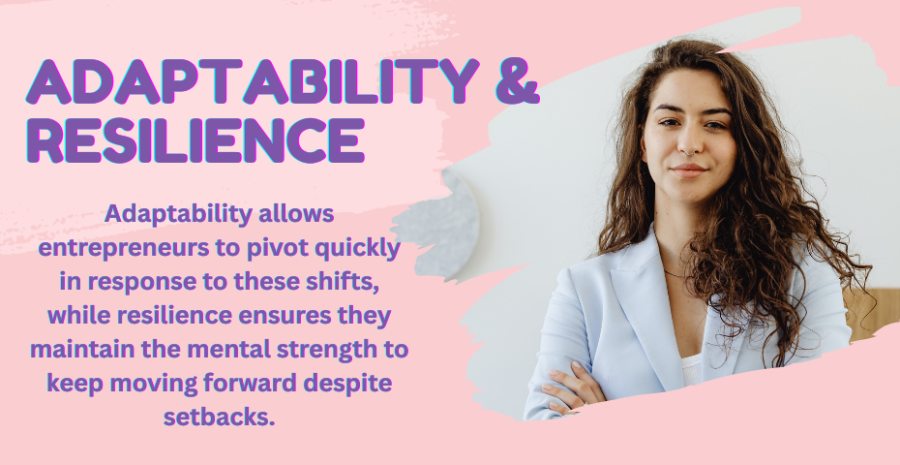
Markets change, competitors emerge, and unforeseen crises arise.
Adaptability allows entrepreneurs to pivot quickly in response to these shifts, while resilience ensures they maintain the mental strength to keep moving forward despite setbacks.
This combination is the hallmark of leaders who endure where others quit.
Reed Hastings, co-founder of Netflix, exemplifies adaptability.
Originally a DVD rental-by-mail service, Netflix pivoted to streaming, then into original content production, each time anticipating where consumer behavior was headed.
These bold shifts required resilience to withstand criticism and operational challenges, yet they positioned Netflix as a dominant player in entertainment.
Takeaway: Adaptability and resilience are strengthened through scenario planning, diversified revenue streams, and maintaining an optimistic yet realistic outlook on challenges.
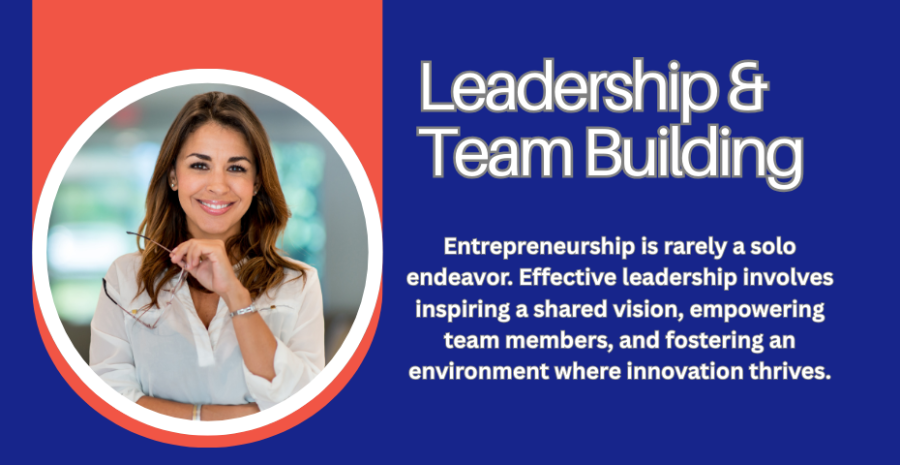
Entrepreneurship is rarely a solo endeavor. Effective leadership involves inspiring a shared vision, empowering team members, and fostering an environment where innovation thrives.
Strong leaders attract top talent, retain high performers, and create a culture aligned with the company’s values.
Oprah Winfrey’s media empire is a testament to her leadership capabilities.
By surrounding herself with skilled professionals, empowering their creative input, and maintaining a culture of authenticity, she has sustained a decades-long career of influence and impact.
Takeaway: Leadership is developed through self-awareness, consistent communication, and a genuine commitment to employee growth and well-being.
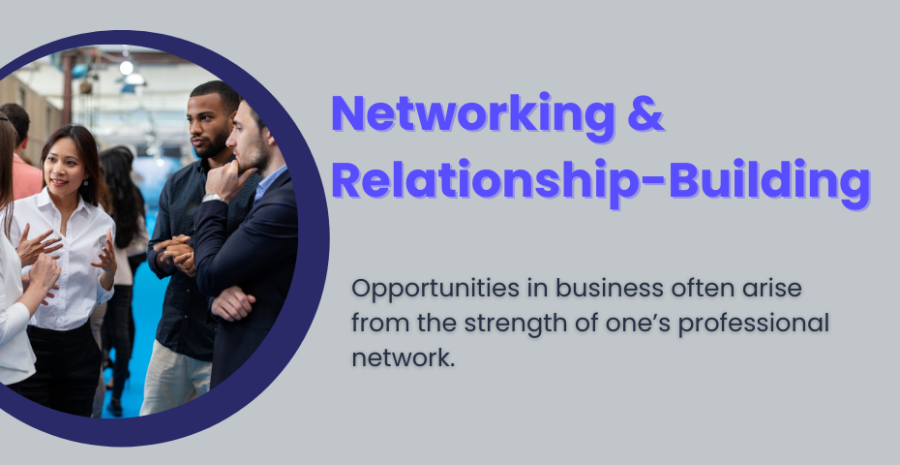
Opportunities in business often arise from the strength of one’s professional network. Building authentic relationships with peers, mentors, customers, and partners can lead to collaborations, referrals, and market insights.
Richard Branson, founder of the Virgin Group, leveraged his charismatic approach to networking to secure partnerships and expand his brand into multiple industries.
His ability to connect with people at all levels has been a cornerstone of his business expansion strategy.
Takeaway: Networking should be approached with genuine curiosity and a value-first mindset, ensuring that relationships are mutually beneficial.
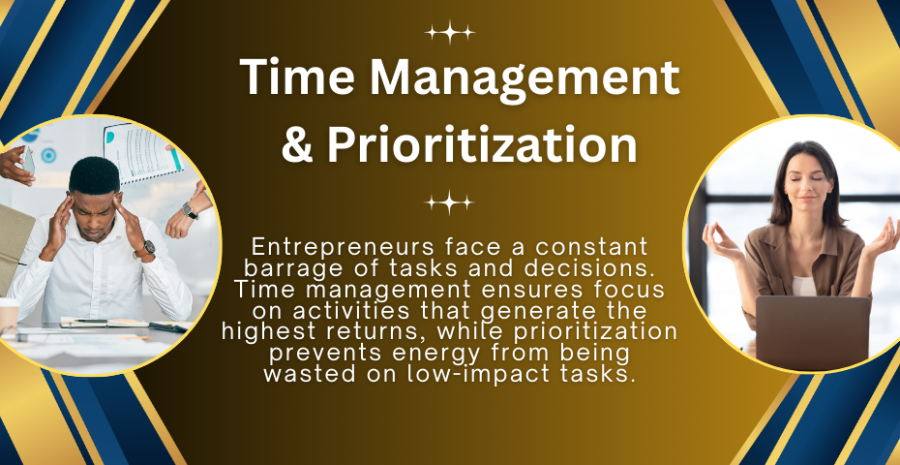
Entrepreneurs face a constant barrage of tasks and decisions. Time management ensures focus on activities that generate the highest returns, while prioritization prevents energy from being wasted on low-impact tasks.
Bill Gates, during Microsoft’s growth years, was known for his intense focus on product development and strategic partnerships, delegating other functions to trusted team members. This discipline allowed him to maximize impact while minimizing distractions.
Takeaway: Time-blocking, delegating effectively, and regularly reassessing priorities are key to sustaining productivity and preventing burnout.
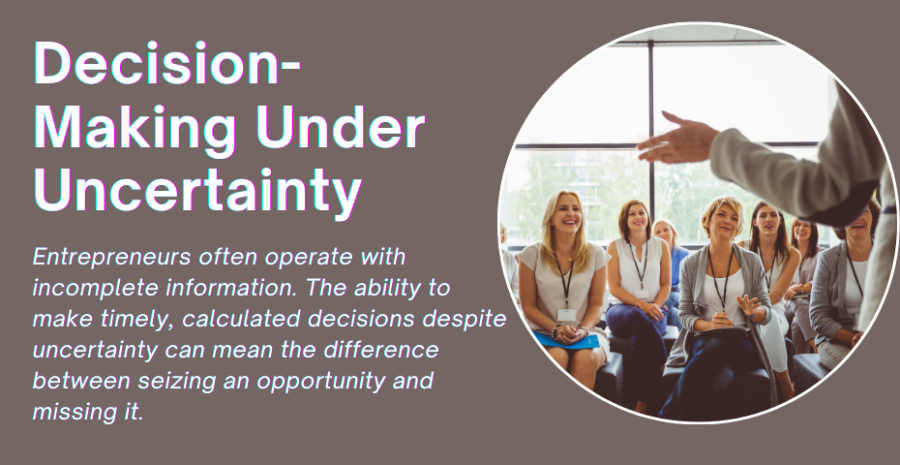
Entrepreneurs often operate with incomplete information. The ability to make timely, calculated decisions despite uncertainty can mean the difference between seizing an opportunity and missing it.
Howard Schultz’s decision to buy Starbucks and expand it globally was made during a time when the specialty coffee market was largely untested in the U.S. His calculated risk transformed Starbucks into a global brand.
Takeaway: Building a framework for assessing risks, coupled with a tolerance for ambiguity, enables entrepreneurs to act decisively in uncertain conditions.
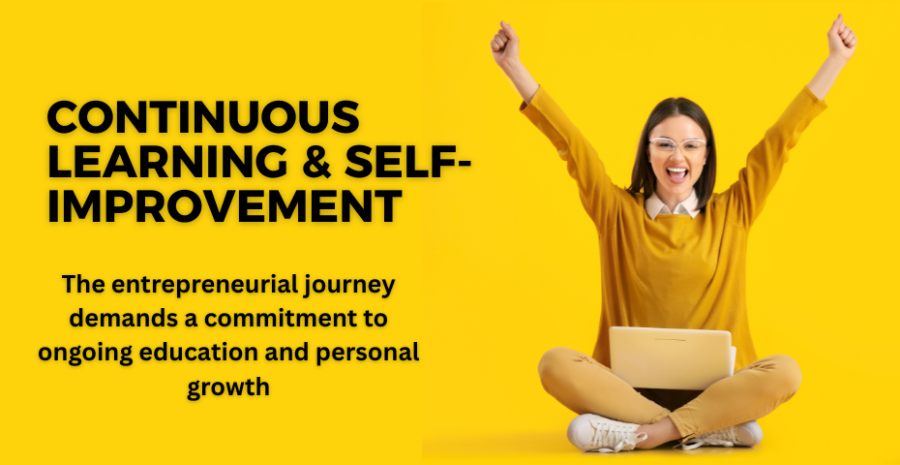
The entrepreneurial journey demands a commitment to ongoing education and personal growth. This includes staying informed on industry trends, refining leadership abilities, and embracing constructive feedback.
Warren Buffett spends a significant portion of his day reading and learning, a habit that has contributed greatly to his investment success over decades. His example underscores the value of lifelong learning in maintaining a competitive edge.
Takeaway: Entrepreneurs should allocate regular time for reading, attending industry events, and engaging with mentors to continually sharpen their skills.
While industries, technologies, and consumer preferences will inevitably change, the foundational skills outlined here remain constant drivers of entrepreneurial success. Strategic thinking provides the roadmap, problem-solving clears obstacles, and financial literacy keeps the enterprise sustainable.
Marketing and sales generate momentum, while adaptability and resilience ensure that momentum is not lost when challenges arise. Leadership and networking build the human infrastructure of the business, and time management ensures that the entrepreneur’s finite energy is invested wisely.
Decision-making under uncertainty captures opportunities before they vanish, and continuous learning ensures the entrepreneur remains relevant in a dynamic marketplace.
These skills are not innate gifts possessed by a fortunate few - they can be learned, practiced, and refined over time. The entrepreneurs who actively cultivate them position themselves to thrive in any market environment, making them better prepared for both immediate challenges and long-term growth.
In a business landscape where change is the only constant, mastering these competencies will serve as a durable competitive advantage, ensuring that both the entrepreneur and their enterprise not only survive but prosper.
Get ready for a new era of marketing.

About: Andries vanTonder (66)
Over 46 years selfemployed
He is a Serial Entrepreneur, an Enthusiastic supporter of Blockchain Technology and a Cryptocurrency Investor
Find me at my Markethive Profile Page | My Twitter Account | My Instagram Acount | and my Facebook Profile.
